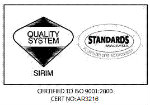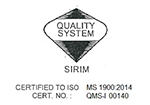Malay Language Malay Identity
A compromise is a situation where someone accepts something slightly different from what that person really wants, because of circumstances or because they have taken into account the wishes of other people.
Any human dealing will usually involve a compromise. However not every compromise is acceptable.
The Jackpot City casino also has hundreds of video slots, table games, live games and more for you to choose from.What about the decision to change the name ‘Bahasa Melayu’ to ‘Bahasa Malaysia’, citing national unity as its motive: is it another compromise? If so, is it an acceptable compromise? And what is actually being compromised?
Language, it is said, is the soul of a nation (Bahasa Jiwa Bangsa). It is the vehicle of the mind, through which humans express their thoughts and feelings. ‘Bahasa Melayu’, in this regard, is the soul of ‘Bangsa Melayu’ (the Malays).
That being the case, the notion ‘Bahasa Malaysia’ becomes problematic , to say the least. ‘Bahasa Malaysia’ is supposedly the soul of ‘Bangsa Malaysia’ (Malaysian). But the term ‘Malaysian’ indicates citizenship, not nationhood. A Malaysian could be a Malay, an Indian, a Chinese, or anybody. The Malaysians, taken together, could hardly form a nation with a soul unless we can accept the idea of a soulless nation, or a nation that is still searching for a soul. In short there is no ‘Bahasa Malaysia’ unless one believes that there is a nation called ‘Malaysian’ (Bangsa Malaysia).
In term of time, fifty years of independence is insufficient time in order to have a distinct nationhood. The Malaysians are divided into different races. They profess different religions and speak different languages. They do not share a common historical and political destiny. These are the undeniable ‘hard facts’. These particular ‘facts’ they are value dependent, meaning with wisdom these facts could be either a blessing, or a recipe for disaster. Hence the talk about national unity.
Malaysian unity must be conceived without ignoring these facts. We must admit that it takes a very long time to forge a common historical and political destiny among the various races. It is also impossible to force inter-marriage among its people in order to create a new race, just as it is impossible to impose a common religion. What could be done with ‘relative ease’ and without creating difficult controversy is to agree on having a national language. One may use a language other than one’s mother tongue without having to change one’s cultural identity.
The justification for choosing Bahasa Melayu as the national language is all too obvious but it is not so with the justification for changing the name to Bahasa Malaysia.
Does this mean that the non-Malays refused to accept Bahasa Melayu as the National Language unless the name is changed to Bahasa Malaysia? If that is really the case we must demand reason and explanation for: (i) the refusal to accept Bahasa Melayu, and (2) how the change could foster unity? Had English been chosen as the national language, would there have been suggestions to change the designation to Bahasa Malaysia as well?
To a discerning Malay the compromise is not just a matter of naming.
When we say Bahasa Melayu is the soul of the Malays, we mean it is the language where their identity as Muslims lies. The Malay language belongs to the family of Islamic languages. It is the language through which the Malays were islamized. To preserve its purity and to protect it from corruption is a matter of preserving and protecting the Malay identity itself, its culture and civilization, which is deeply entrenched in religion. It is a matter of trust and responsibility, and only the Malays themselves would have all the reasons to shoulder that trust and fulfill that responsibility.
Thus renaming ‘Bahasa Melayu’ ‘Bahasa Malaysia’ may be construed as transferring that trust and responsibility to ‘Bangsa Malaysia’. Can ‘Bangsa Malaysia’, which is still in search of an identity, be given such a responsibility? So why do it in the first place?
Bahasa Melayu has existed long before the existence of an entity we call Malaysia. By renaming it Bahasa Malaysia the language will be severed from its long history, and that will ultimately change its character.
Let us not forget that the Malays are Muslims first and foremost. A developed Malay nation is one that has a clear identity and is fully conscious of its destiny. A truly developed Malay nation within a developed Malaysia is not one that would continuously compromise until it loses its identity and forgets its destiny. The compromise to rename ‘Bahasa Melayu’ ‘Bahasa Malaysia’ is, as far as the Malays are concerned, not a positive development but a backward move. It is akin to forsaking their identity for something vague, uncertain, and confusing.
It is true that the decision has already been made. But an erroneous and unscrupulous decision has to be challeged regardless if it were carved in stone. The decision could have been made by a group of individuals who are in reality culturally illiterate, who think that there is nothing higher than national interest.
It takes wisdom and courage to question a decision. A thinking human being wants to be convinced that the decision is right. By ‘right’ we mean the decision must be justified by sound reason.
The Malays, it would appear, are simply told by their leaders to accept the decision and to keep quiet. It is as if they have been told that to accept any decision made by the people in power is a virtue, and to question it is a vice. They are expected to emulate Hang Tuah, the loyal servant of the king, and to avoid behaving like Hang Jebat, the villain, the traitor. Are Hang Tuah and Hang Jebat really heroes? Islam has taught the Malays rationality and moderation: Hang Tuah and Hang Jebat were neither rational, nor moderate. Their stories reflect extremes. Therefore, should the Malays be made to emulate either one?




